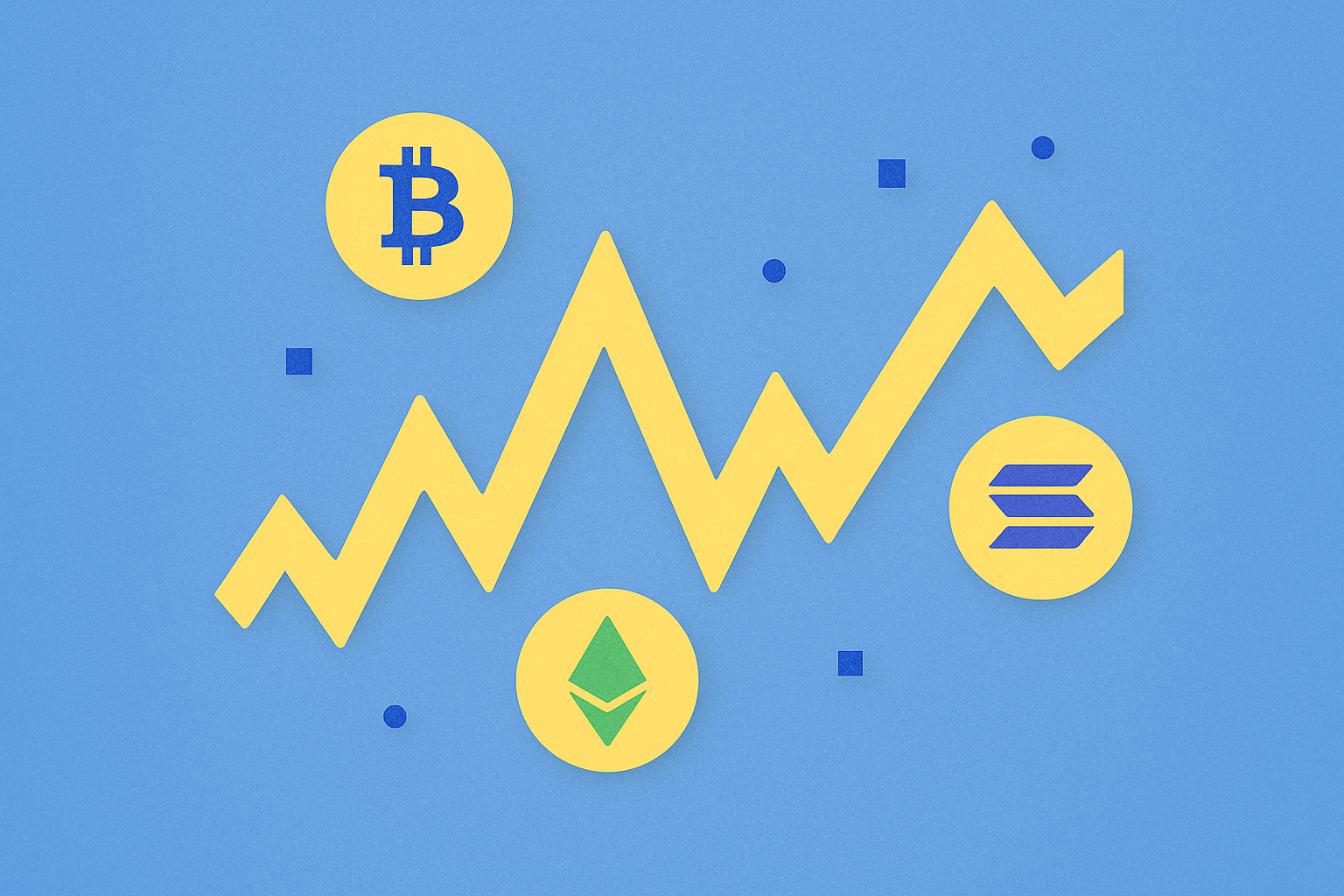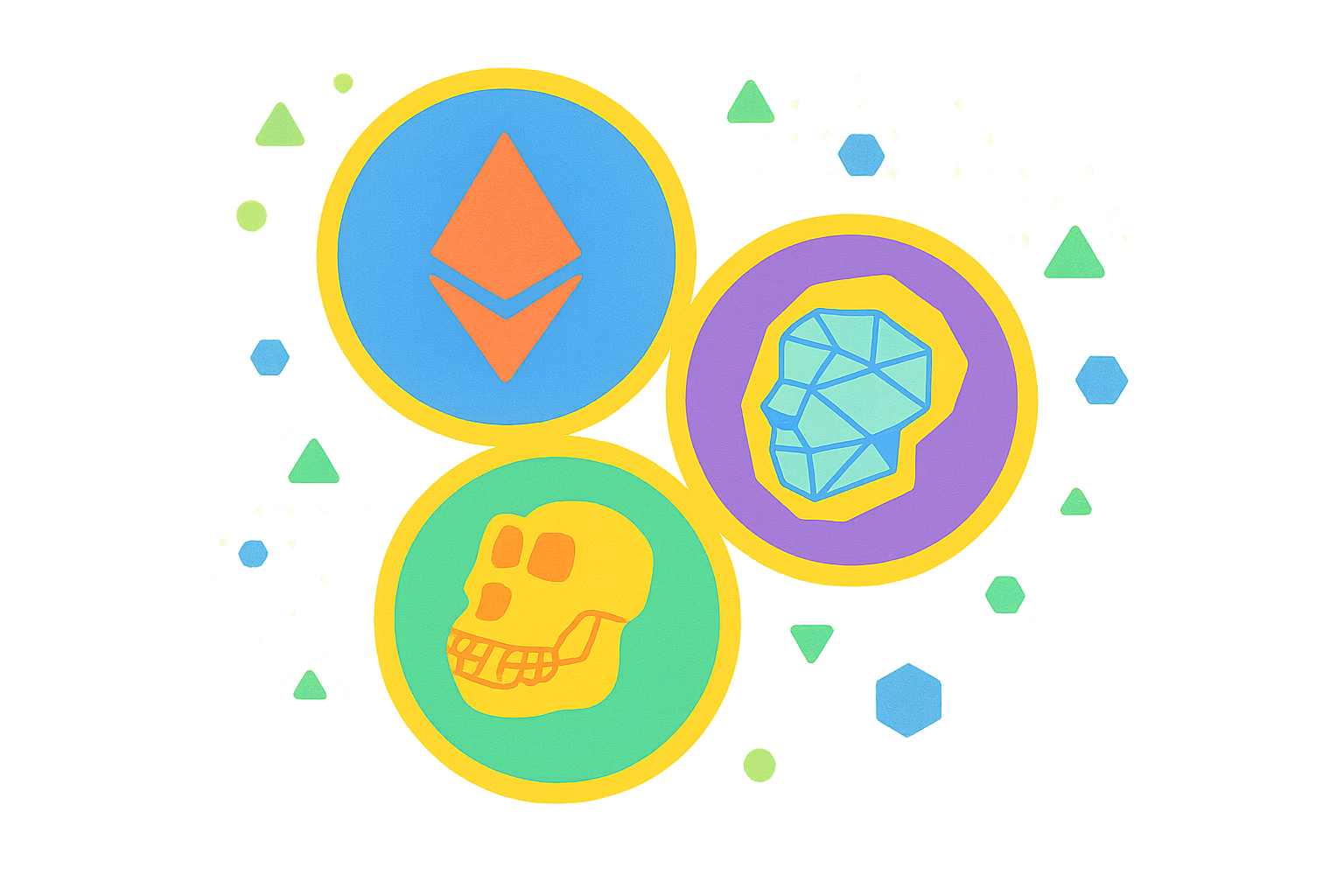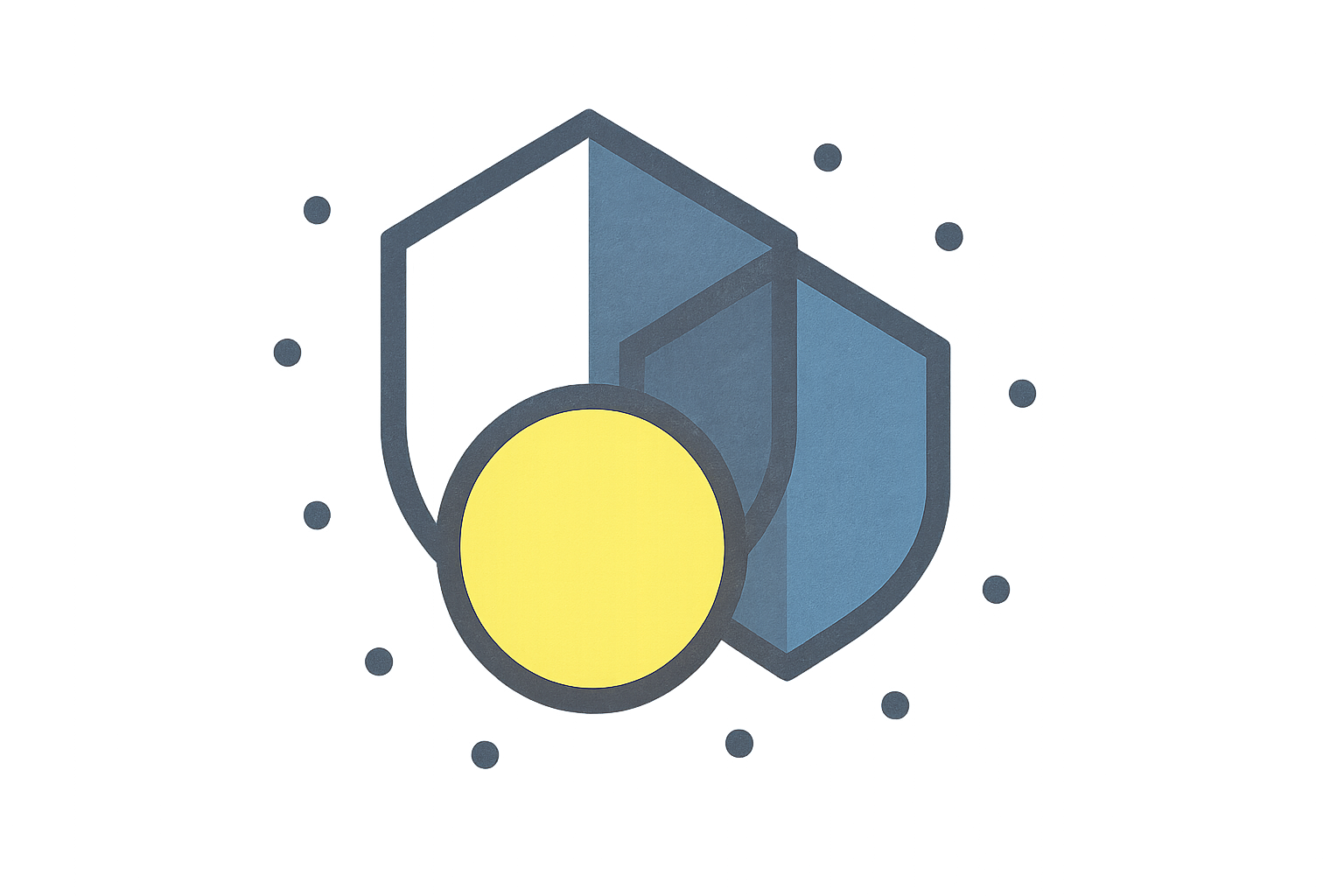Web3 Cüzdan nedir? 2025'te Web3 Cüzdanlar için Kapsamlı Bir Rehber

Web3 Cüzdan Tanıtıldı: Dijital Varlık Yöneticiniz
Web3 Cüzdan, merkeziyetsiz internet dünyasına dijital bir geçittir. Bu sadece dijital varlıkları güvenli bir şekilde depolamak için bir araç değil, aynı zamanda kullanıcıların blockchain ağlarıyla etkileşimde bulunmaları için ana bir arayüzdür. Bir Web3 Cüzdan rehberi olarak, temel işlevlerine ve özelliklerine derinlemesine inmemiz gerekiyor. Web3 Cüzdan'ın özü, blockchain ağlarına erişim sağlamak ve işlemleri gerçekleştirmek için kritik olan özel anahtarları depolayan bir yazılımdır. Geleneksel kripto para cüzdanlarının aksine, Web3 Cüzdanlar daha geniş bir işlevsellik yelpazesi sunarak kullanıcıların merkeziyetsiz uygulamalar (dApp'ler) ile sorunsuz bir şekilde etkileşimde bulunmalarına olanak tanır.
Güvenlik, Web3 Cüzdanları için birincil önceliktir. Bu Cüzdanlar, kullanıcıların özel anahtarlarını bilgisayar korsanları ve diğer üçüncü taraf tehditlerinden korumak için güçlü şifreleme teknolojileri kullanır. Çoğu Web3 Cüzdanı, kullanıcıların varlıkları üzerinde tam kontrol sahibi olduğu anlamına gelen saklama dışıdır. Bu tasarım felsefesi, bireylerin dijital kimlikleri ve varlıkları üzerinde mutlak özerkliğe sahip olduğu Web3'ün temel değerleriyle uyumludur. Ancak bu, kullanıcıların özel anahtarlarını ve kurtarma ifadelerini koruma konusunda daha fazla sorumluluk alması gerektiği anlamına da gelir.
Web3 Cüzdanlarının işlevleri basit varlık depolamanın çok ötesine geçmektedir. Genellikle çok zincirli destek, token takasları, staking ve yönetişim oylaması gibi gelişmiş özelliklerle entegre olurlar. Örneğin, bazı Web3 Cüzdanları kullanıcıların merkeziyetsiz finans (DeFi) protokollerine doğrudan katılmasına izin verir, bu da kullanıcılara cüzdan arayüzünden ayrılmadan karmaşık işlemler yapma imkanı tanır. Bu çok yönlülük, Web3 Cüzdanlarını kullanıcıların blockchain ekosistemini keşfetmesi ve etkileşimde bulunması için merkezi bir merkez haline getirir.
Size en uygun Web3 Cüzdanı seçin: güvenlik ve işlevselliğin mükemmel dengesi.
Doğru Web3 Cüzdanını seçmek, dijital varlıkları güvenli ve verimli bir şekilde yönetmek için çok önemlidir. Piyasada mevcut çeşitli Web3 Cüzdanı türleri bulunmaktadır; bunlar arasında tarayıcı uzantıları, mobil uygulamalar ve donanım cüzdanları yer alır. Her türün kendine özgü avantajları ve kullanım alanları vardır. Yeni başlayanlar için, MetaMask gibi tarayıcı uzantısı cüzdanları genellikle kurulum ve kullanım kolaylığı nedeniyle ideal bir başlangıç seçeneğidir. Mobil cüzdanlar, kullanıcıların sıklıkla küçük işlemler gerçekleştirdiği için daha fazla taşınabilirlik sunar. Büyük miktarda varlık tutan kullanıcılar içinse, donanım cüzdanları en yüksek güvenlik seviyesini sağlar.
Web3 Cüzdanı seçerken, kullanıcıların güvenlik, kullanım kolaylığı, desteklenen blockchain ağları ve dApp'lerle uyumluluk gibi birden fazla faktörü dikkate alması gerekir. Aşağıdaki tablo, birkaç popüler Web3 Cüzdanının ana özelliklerini karşılaştırmaktadır:
| Cüzdan türü | Güvenlik Seviyesi | Kullanılabilirlik | Çok zincirli destek | dApp Uyumluluğu |
|---|---|---|---|---|
| Tarayıcı Uzantısı | Orta | Yüksek | Sınırlı | Mükemmel |
| Mobil Uygulama | Orta | Yüksek | yaygın olarak | İyi |
| Donanım Cüzdan | Yüksek | Düşük | Sınırlı | Sınırlı |
Yeni kullanıcılar için, zengin öğretici içeriklere sahip kullanıcı dostu bir cüzdan seçmek çok önemlidir. Bazı cüzdanlar, kullanıcıların gerçek varlıkları içermeden işletim sürecine aşina olmalarını sağlayan yerleşik öğretim modülleri ve test ağı özellikleri sunar. Aynı zamanda, cüzdanın uzun vadeli gelişim potansiyelini de göz önünde bulundurmak önemlidir. Kullanıcılar Web3 ekosistemine daha derinlemesine dahil oldukça, çapraz zincir işlemleri veya belirli DeFi protokolleri ile derin entegrasyon gibi daha gelişmiş özelliklere ihtiyaç duyabilirler.
Gate Cüzdan: Akıllı ve Güvenli Web3 Varlık Yönetiminde Yeni Bir Dönemi Öncülük Ediyor
Birçok Web3 Cüzdanı arasında, Gate'in Cüzdan çözümü öne çıkıyor ve kullanıcılara kapsamlı, güvenli ve kullanıcı dostu bir dijital varlık yönetim platformu sunuyor. Gate Cüzdanı, merkezi borsaların kolaylığını merkeziyetsiz Cüzdanların güvenliği ile birleştirerek, kullanıcıların Web3 dünyasına bağlanmaları için kesintisiz bir köprü oluşturuyor. Bu Cüzdan, çoklu zincir varlık yönetimini destekleyerek, kullanıcıların tek bir arayüz içinde farklı blok zincirleri üzerinden varlıkları kolayca yönetmelerine olanak tanıyor.
Gate Cüzdanının en önemli özelliklerinden biri yenilikçi güvenlik mekanizmasıdır. Çoklu imza teknolojisi ve gelişmiş şifreleme algoritmaları kullanarak, varlık hırsızlığı riskini önemli ölçüde azaltmaktadır. Aynı zamanda, Gate, kullanıcıların önceden belirlenmiş güvenilir kişiler aracılığıyla cüzdanlarına erişimini yeniden kazanmalarını sağlayan bir sosyal kurtarma özelliği sunmaktadır; bu, geleneksel Web3 cüzdanlarında kaybolan özel anahtarlar nedeniyle kalıcı varlık kaybı sorununu ele almaktadır. Veriler, kullanıcıların %60'ından fazlasının sosyal kurtarma özelliğinin Web3 cüzdanlarını kullanma konusundaki güvenlerini önemli ölçüde artırdığına inandığını göstermektedir.
Gate Cüzdanı ayrıca kullanıcıların cüzdan içinde doğrudan katılım gösterebileceği zengin bir DeFi özellikleri seti ile entegre edilmiştir.Staking, borç verme ve likidite madenciliği gibi aktiviteler. Bu tek durak hizmeti, kullanıcı deneyimini büyük ölçüde artırarak, farklı platformlar arasında geçiş yapmanın zorluğunu azaltıyor. En son kullanıcı anketine göre, Gate Cüzdan kullanıcılarının %95'i, bu entegre DeFi işlevselliğinin Web3 ekosistemine katılımlarının sıklığını ve derinliğini önemli ölçüde artırdığını belirtti.
Web3 Cüzdan Kullanıcı Kılavuzu: Başlangıçtan Uzmanlığa
Web3'e yeni başlayanlar için Web3 Cüzdanı kullanmak karmaşık görünebilir, ancak birkaç temel adımı öğrenmek süreci büyük ölçüde basitleştirebilir. İlk olarak, kullanıcıların ihtiyaçlarına uygun bir Web3 Cüzdanı seçmeleri gerekir. Yeni başlayanlar için, kullanıcı dostu ve son derece güvenli bir Cüzdan, örneğin Gate.com Cüzdanı seçmeleri önerilir. Kurulum tamamlandığında, kullanıcılar yeni bir Cüzdan oluşturmalı veya mevcut bir Cüzdanı içe aktarmalıdır. Bu süreçteki en kritik adım, kurtarma ifadesini veya özel anahtarı güvenli bir şekilde yedeklemektir. İstatistikler, varlık kaybı vakalarının %80'inden fazlasının kullanıcıların kurtarma ifadelerini doğru bir şekilde korumamasından kaynaklandığını göstermektedir.
Web3 Cüzdan kullanmanın bir sonraki adımı, kripto paraları güvenli bir şekilde göndermeyi ve almayı öğrenmektir. Kullanıcıların cüzdan adresi kavramını anlamaları ve her işlemden önce adresi dikkatlice kontrol etme alışkanlığını geliştirmeleri gerekmektedir. İleri düzey kullanıcılar için dApp'lerle etkileşim kurmayı, DeFi projelerine katılmayı ve NFT'leri yönetmeyi anlamak temel becerilerdir. Gate Cüzdan, kullanıcıların bu ileri düzey özellikleri güvenli bir şekilde keşfetmelerine yardımcı olmak için ayrıntılı kılavuzlar ve simüle edilmiş bir ortam sunmaktadır.
Web3 cüzdanları kullanırken güvenlik her zaman en öncelikli konudur. Kullanıcılar, cüzdan yazılımlarını düzenli olarak güncelleme, güçlü şifreler kullanma ve iki faktörlü kimlik doğrulamayı etkinleştirme alışkanlığı geliştirmelidir. Büyük varlıklar için, soğuk depolama için donanım cüzdanları kullanmayı düşünmek akıllıca olacaktır. Güvenlik uzmanlarına göre, farklı amaçlar için varlıkları birden fazla cüzdanda çeşitlendirmek riski daha da azaltabilir. Uygulamalar, bu güvenlik önlemlerini benimseyen kullanıcıların varlık kaybı olasılığını %90'dan fazla azalttığını göstermektedir.
Kullanıcılar Web3 ekosistemini daha derinlemesine anlamaya başladıkça, çapraz zincir işlemleri ve DAO yönetimine katılma gibi daha karmaşık özellikleri keşfetmeye başlayabilirler. Gate.com Cüzdanı, kullanıcıların sezgisel arayüzü ve kapsamlı eğitim kaynakları aracılığıyla öğrenme ve büyüme için ideal bir platform sunmaktadır. Veriler, sistematik öğrenim sürecinden geçen kullanıcıların Web3 projelerine katılım ve başarı oranlarının ortalama kullanıcılardan %50'den fazla daha yüksek olduğunu göstermektedir.

Gate Cüzdan: 2025'te Web3 için Güvenli Çok Zincirli Çözüm

Spot Cüzdan Güvenliği: 2025 için Temel Özellikler ve Kullanım Kılavuzu

Web3 Cüzdan nedir? Yeni Başlayanlar için Kapsamlı Bir Rehber

Web3 cüzdan Yeni Başlayanlar Rehberi: Merkezi Olmayan Finansın Yeni Dünyasını Keşfetmek

En iyi Web3 cüzdan: 2025'te akıllı ve güvenli varlık yönetiminin yeni bir çağı

Web3 Cüzdanlarını Anlamak: Dijital Varlık Yönetiminin Geleceğine Kapsamlı Bir Rehber

Kripto piyasasındaki dalgalanmaları başarıyla yönetmek: Etkili volatilite alım satım stratejileri

Başarılı Swing Trading İçin En Önemli Göstergeler

Kendinize Özgü Bir Ape Sahip Olun: NFT Satın Alma Rehberi

Blockchain Teknolojisinde Kriptografik Hash Fonksiyonlarının Anlaşılması

Dijital para birimlerinde çifte harcama sorununu anlamak





